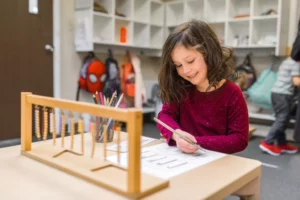If you consider sending your child to summer camp, you may wonder if it fits their personality well. However, there are countless benefits of summer camps. Perhaps your child has never spent much time away from you other than to go to school, or maybe your child has unique interests, and you are concerned that they will feel out of place at camp.
Although every child is an individual, we believe summer camp benefits all children. Camp, regardless of your child’s interests, helps children develop essential social, emotional, and cognitive skills. Best of all, at camp, children make memories that will last a lifetime.
Benefits of summer camps for kids:
To help you decide whether summer camp is right for your child, we’ll go over the advantages of summer camp and why summer day camp is important.
#1 Creates Lifelong Skills:
Children participate in a variety of group activities during summer camp. A child, for example, learns how to work on a team, communicate with other children, and solve problems independently while participating in different activities.
For example, a child will gain leadership skills by leading a group of other children on a hike. Alternatively, dividing up chores at an overnight camp will help a child develop more vital communication skills. A child may develop important decision-making skills when participating in different summer camp activities as they face challenges and overcome obstacles while participating in new and exciting activities. These skills are valuable in the real world and developed at summer camp.

Children, of course, learn social skills in school. On the other hand, summer camp brings children together in an environment that fosters a stronger sense of community and an appreciation for individual differences. In contrast, school is primarily concerned with academic achievement.
#2 Encourages independence:
A child spends time away from a parent at camp. This independent time is critical in assisting children in developing a sense of identity. Children learn to become more self-reliant as they explore their interests and discover their strengths and weaknesses. They learn to rely on their inner voice rather than a parent or teacher to tell them what to do. Independence is essential for developing into a self-sufficient adult.
Perhaps your child is afraid to sleep without Mom or Dad down the hall, or they are too shy to go out alone. Camp will assist them in transitioning to independence by allowing them to explore the world in a new and exciting way. Independence can also help a child’s self-esteem.
Raising an independent child entails teaching responsibility, encouraging exploration, and providing a safe environment where a child can make independent decisions. Summer camp fosters all three of these aspects.
#3 Makes time for play:
During the school year, children are accustomed to arriving on time, doing their homework, and then going to bed. Some students may participate in extracurricular activities. Summer camp, while still structured, is more relaxed than the school routine and allows for time and freedom for spontaneous play.
Free play is important for a child’s development because it teaches them to develop creative thinking skills and to explore their imagination. Playtime provides a safe environment for children to express their thoughts and emotions, resulting in stronger and happier children. They also learn to interact with their surroundings, resolve conflicts, develop negotiating skills, and cope with stress. Unstructured play has numerous advantages and is a fun way to meet new people.
#4 Teaches teamwork:
Whatever your child’s interests are, whether sports or arts and crafts, a camp program will engage them in team-building activities. Knowing how to work in a group is a valuable life skill. Teamwork is essential because it aids in developing communication skills, emotional intelligence, and leadership abilities.

A child who understands teamwork realizes that working with others is sometimes the most efficient way to get things done. They will value teamwork as a solution rather than believing they must handle tasks alone. As a result, children will grow up wanting to be involved in their community.
#5 Fun screen-free activities:
Children spend more than seven and a half hours per day in front of a screen, whether it’s a mobile device, a TV, or a computer playing a video game. Too much media consumption reduces time spent sleeping and reading and may have a negative impact on academic performance.
Camp connects children to the joy of life outside of the screen. Children will have numerous opportunities to engage their minds in enjoyable ways throughout our camp programs. Whatever your child’s interests are, they will learn and socialize in a safe, real-world setting at summer camp. Time away from screens is essential for a child’s brain, body, spirit, and future.
Takeaway:
Summer camps at Little Steps Montessori have numerous advantages that can last a lifetime. Not only will your child return from camp with more independence and a stronger sense of self, but they will also have learned new skills, made new friends and made memories they will cherish for the rest of their lives. When it comes to summer camps, you can enroll your little ones in summer camps at Little Steps Montessori. Different activities at our summer camps make long boring summer days fun and develop new skills in kids.










